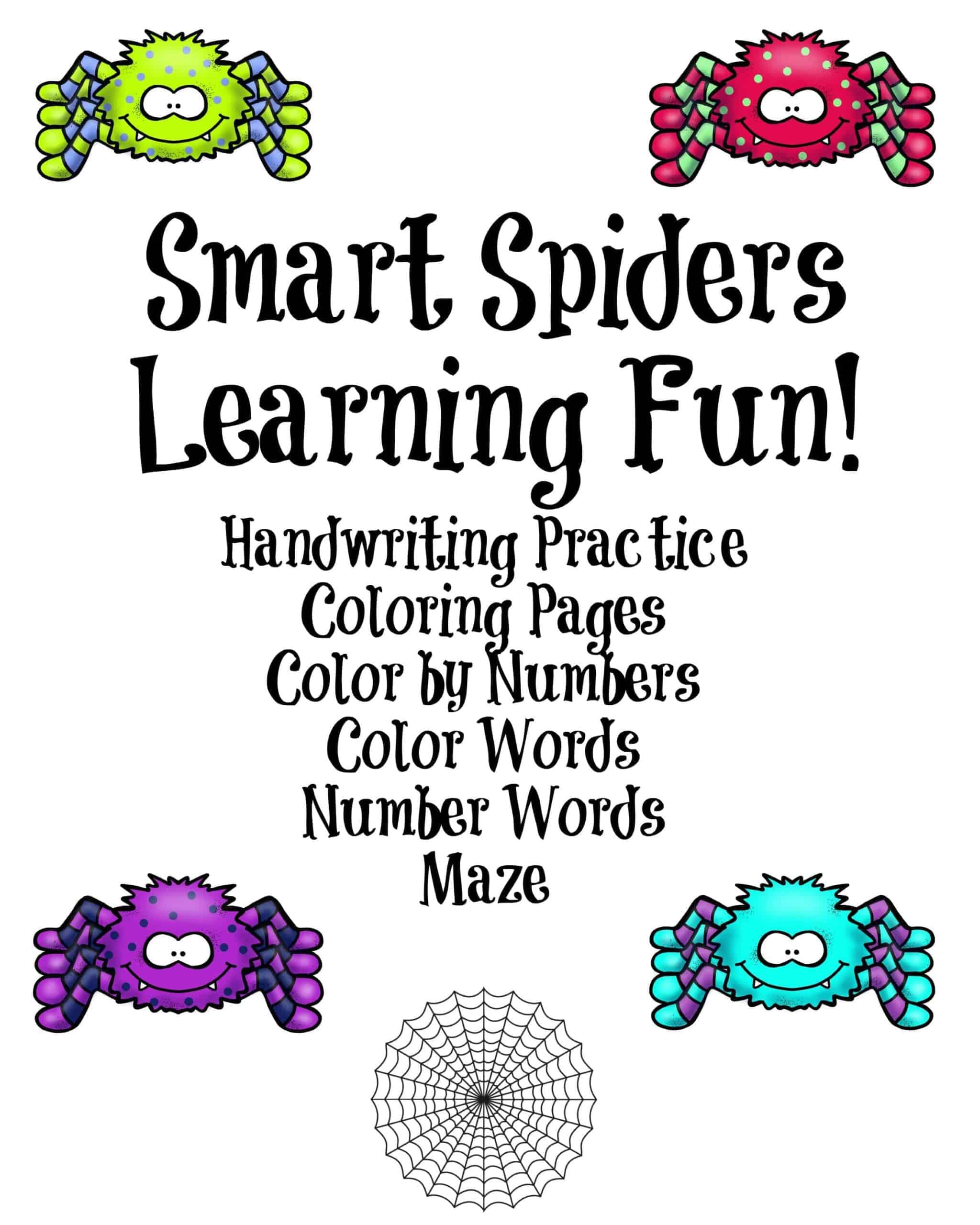Let’s talk about spiders, shall we? When you hear the word "spider," what comes to mind? A creepy, crawly creature spinning webs in the corner of your ceiling? Or maybe an eight-legged monster from your childhood nightmares? But here’s the twist—spiders might be way smarter than you think. If you’ve ever wondered how smart spiders really are, you’re in the right place. Get ready to dive into the fascinating world of these tiny architects and uncover their hidden intelligence.
Now, before you start picturing spiders plotting world domination, let’s set the record straight. Spiders aren’t exactly Einsteins of the animal kingdom, but they’re not dumb either. They exhibit some seriously impressive problem-solving skills, memory, and even social behaviors. So, the next time you see a spider weaving its intricate web, take a moment to appreciate the complexity of its mind.
But why does it matter how smart spiders are? Well, understanding their intelligence helps us appreciate the diversity of life and the incredible ways different species adapt to their environments. Plus, who knows? Maybe one day we’ll learn something from these little critters that could revolutionize our own technology. So, let’s get started and explore the mind of a spider!
Read also:The Viral Kid And His Mom Cctv Video A Story That Captured The Worlds Attention
What Makes Spiders So Smart?
If you’re asking, “How smart are spiders?” the answer lies in their unique adaptations and behaviors. Spiders might not have big brains, but they sure know how to make the most of what they’ve got. Let’s break it down:
- Spiders possess an impressive ability to create complex structures, like webs, without any blueprints.
- They can solve problems on the fly, like reweaving a damaged web or capturing elusive prey.
- Some species even exhibit memory and learning capabilities, proving that they’re not just mindless hunters.
So, while we humans are busy figuring out how to build bridges and skyscrapers, spiders have been perfecting their architectural skills for millions of years. And they do it all with a brain the size of a pinhead!
Spider Intelligence: Beyond the Web
When most people think about spiders, they immediately picture their webs. But spider intelligence goes far beyond their silk-spinning abilities. Take, for example, the jumping spider. These little guys don’t rely on webs to catch prey—they use their incredible vision and agility to hunt down their meals. Imagine being able to leap several times your body length and land precisely on your target. That’s some next-level precision!
Jumping Spiders: The Einsteins of the Arachnid World
Speaking of jumping spiders, they’re often considered the smartest among their eight-legged peers. Research has shown that these tiny hunters can recognize patterns, remember past experiences, and even plan their moves. Scientists have observed them pausing before a jump, seemingly calculating the best trajectory to catch their prey. It’s like they’re running simulations in their tiny brains!
How Do Spiders Learn?
Believe it or not, spiders can learn from their environment. One study found that orb-weaving spiders adjust the size and shape of their webs based on the availability of food. If there’s plenty of prey around, they’ll build smaller webs to save energy. But if food is scarce, they’ll expand their webs to increase their chances of catching a meal. It’s like they’re constantly optimizing their strategy to maximize efficiency. Pretty clever, right?
Spider Memory: Do They Remember?
Memory is another fascinating aspect of spider intelligence. Some species have been observed remembering specific locations and even recognizing individual members of their own kind. For example, certain social spiders live in communal webs and work together to hunt and care for their young. This level of cooperation suggests that they can recognize each other and remember past interactions. Who knew spiders could be so social?
Read also:Family Feud Original Host The Man Who Started It All
Spider Communication: Are They Talking to Each Other?
While spiders don’t exactly chat like humans, they do have their own ways of communicating. Vibrations play a crucial role in spider communication. When a spider detects vibrations on its web, it can tell whether it’s a potential mate, a prey item, or even a predator. Some species even use specific patterns of vibrations to attract mates or ward off rivals. It’s like they have their own secret language!
Vibration Detection: The Spider’s Sixth Sense
Vibration detection is one of the most impressive abilities in the spider world. Think about it—spiders can sense the slightest movement on their webs and respond accordingly. This skill is essential for both hunting and self-defense. Some spiders even use vibrations to communicate with each other over long distances. It’s like a spider version of Morse code!
The Evolution of Spider Intelligence
So, how did spiders become so smart? The answer lies in millions of years of evolution. Spiders have had plenty of time to adapt to their environments and develop the skills they need to survive. From their incredible web-building abilities to their keen senses, every aspect of a spider’s intelligence has been fine-tuned by natural selection. And as the world around them changes, spiders continue to evolve and find new ways to thrive.
Natural Selection: The Driving Force Behind Spider Smarts
Natural selection has played a huge role in shaping spider intelligence. Over time, spiders that were better at building webs, hunting prey, or avoiding predators were more likely to survive and reproduce. This process has led to the incredible diversity of spider species we see today, each with its own unique set of skills and adaptations.
Spiders and Human Technology
Believe it or not, spiders are inspiring some of the most cutting-edge technology in the world today. Scientists are studying spider silk to develop stronger, lighter materials for everything from bulletproof vests to medical implants. And that’s just the beginning. By understanding how spiders solve problems and adapt to their environments, we might be able to create smarter robots, more efficient machines, and even better ways to protect our planet.
Spider Silk: The Material of the Future
Spider silk is often hailed as one of nature’s most impressive materials. It’s stronger than steel, lighter than aluminum, and incredibly flexible. Researchers are working hard to replicate these properties in synthetic materials, but so far, nothing compares to the real thing. Who knows? One day, spider silk might be the key to solving some of our biggest engineering challenges.
The Future of Spider Research
As technology advances, we’re learning more and more about the fascinating world of spiders. From studying their brains to decoding their DNA, scientists are uncovering new insights into spider intelligence every day. And the more we learn, the more we realize just how amazing these creatures really are. So, the next time you see a spider, take a moment to appreciate its brilliance. You might just be looking at the next big breakthrough in science!
Why Should We Care About Spider Intelligence?
Understanding spider intelligence isn’t just about satisfying our curiosity—it’s about learning from one of nature’s most successful creatures. By studying how spiders solve problems, adapt to their environments, and communicate with each other, we can gain valuable insights into the workings of the natural world. And who knows? Maybe one day we’ll discover something that could change the way we live, work, and interact with the planet.
Conclusion: How Smart Are Spiders, Really?
So, how smart are spiders? The answer might surprise you. While they might not be building skyscrapers or solving math problems, spiders exhibit some truly remarkable forms of intelligence. From their incredible web-building skills to their problem-solving abilities and even their social behaviors, spiders are far more complex than they appear at first glance.
And here’s the best part—you don’t have to be a scientist to appreciate spider intelligence. The next time you see a spider in your home or garden, take a moment to observe it. Watch how it moves, how it interacts with its environment, and how it solves problems. You might just discover something amazing!
So, what do you think? Are spiders smarter than you gave them credit for? Let us know in the comments below, and don’t forget to share this article with your friends. Who knows? You might just inspire someone else to appreciate the incredible world of spiders!
Table of Contents


